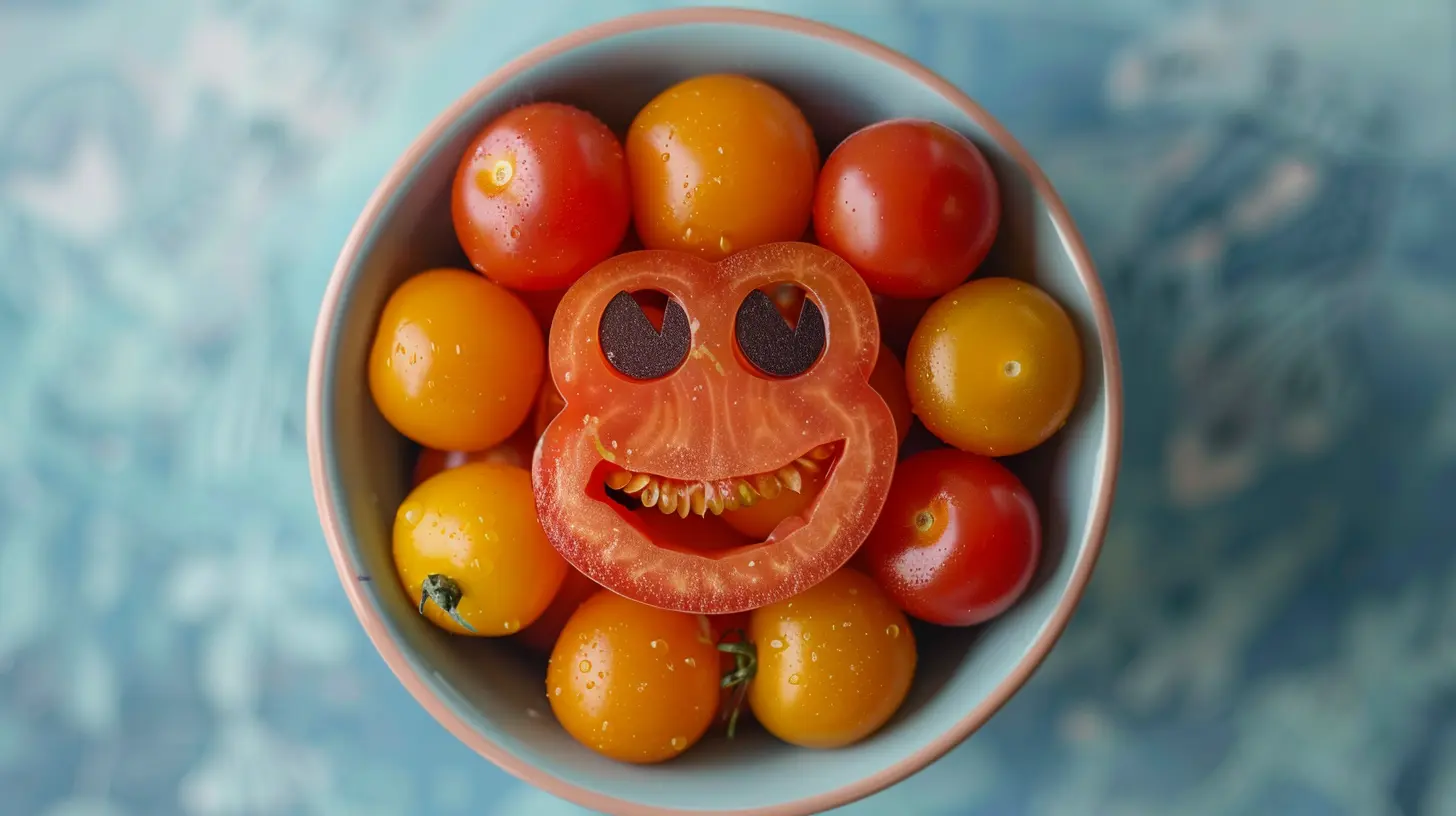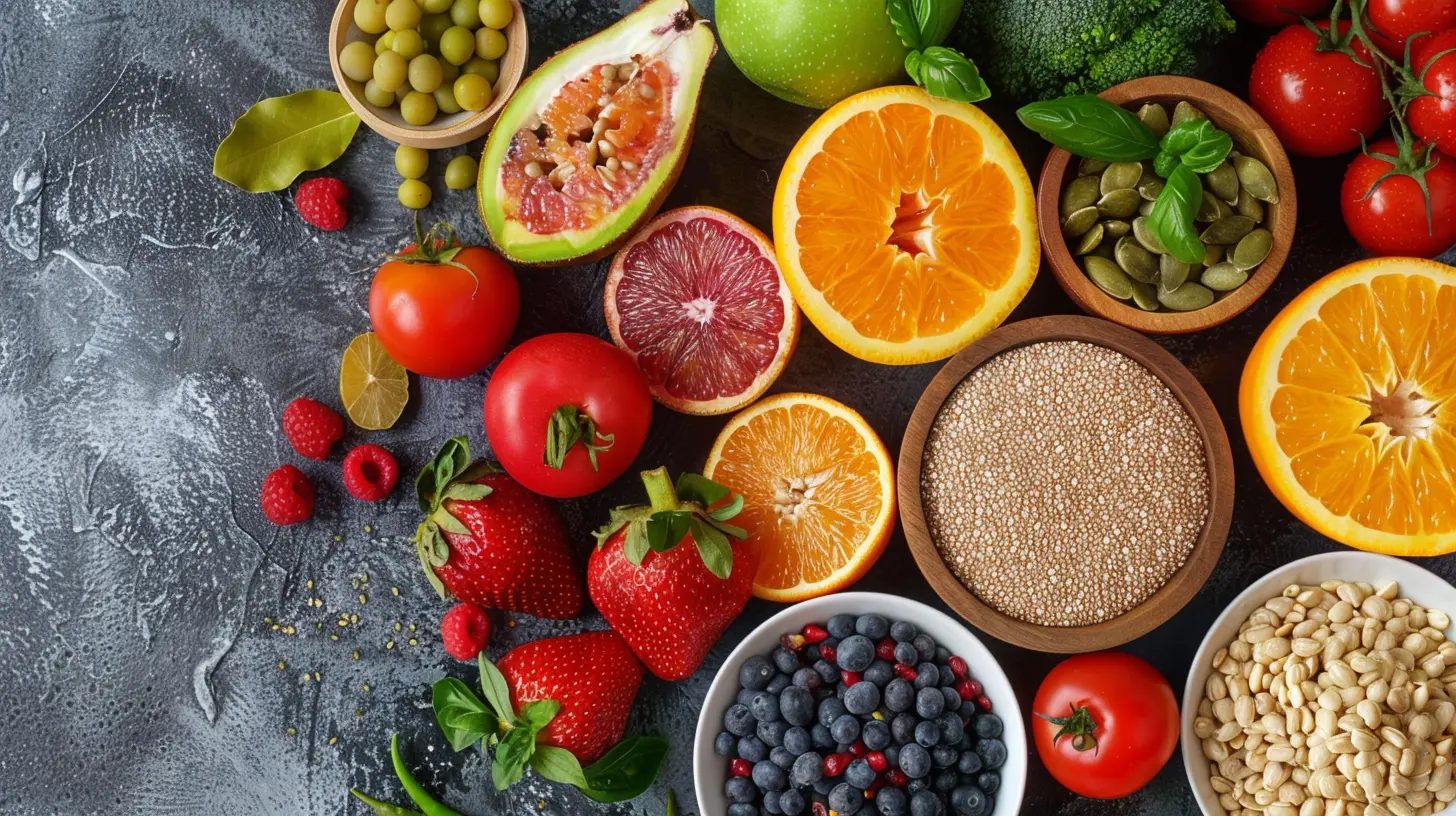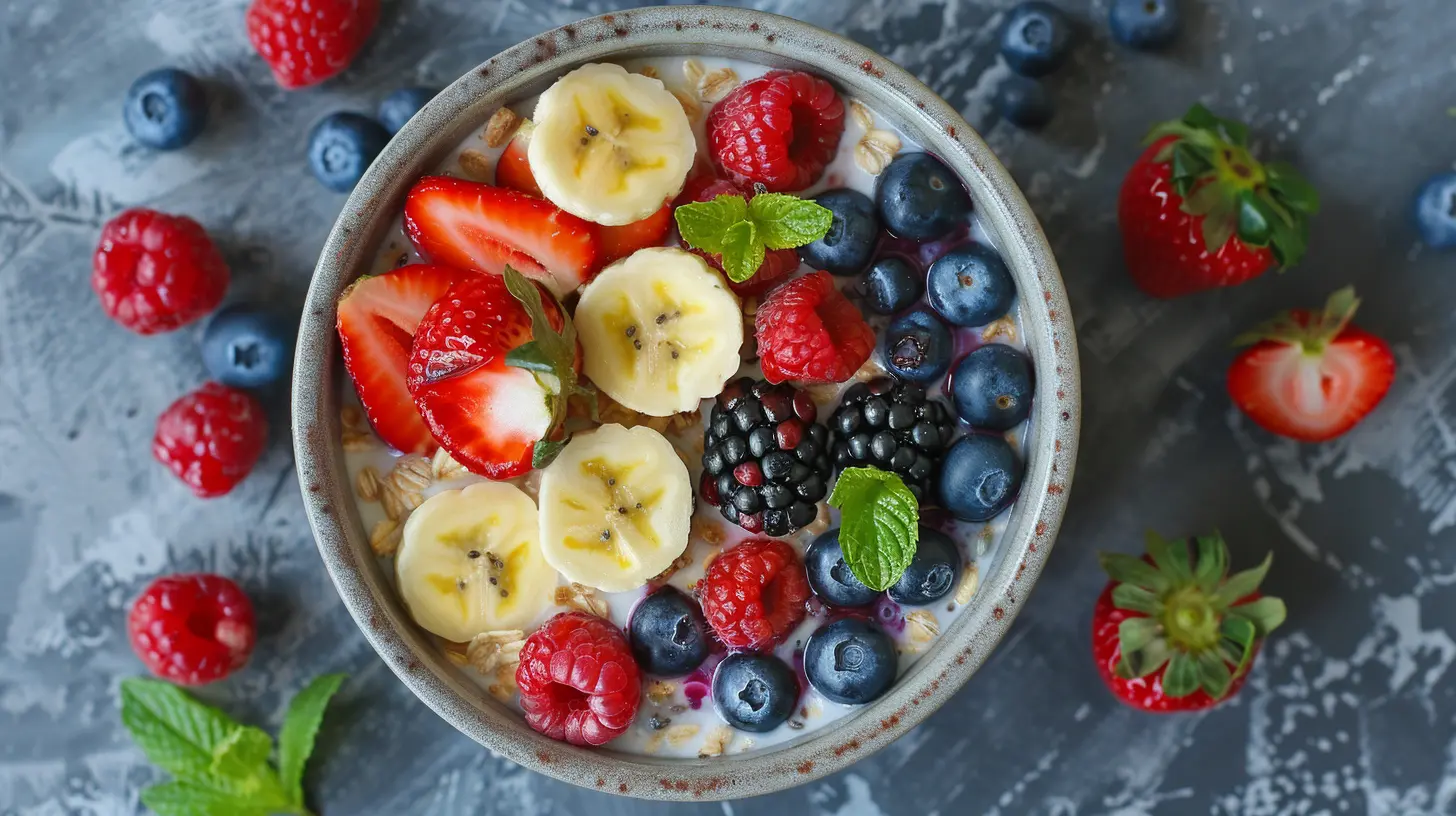The Connection Between Nutrition and Your Child’s Mood
6 October 2025
As parents, we spend so much time making sure our kids are safe, healthy, and happy. We schedule playdates, check in on their schoolwork, monitor screen time—but have you ever stepped back and thought about how what's on their plate affects how they feel? Yep, the connection between nutrition and your child’s mood is very real and actually way more powerful than most of us realize.
Food isn’t just fuel for the body. It’s brain fuel, too. And the type of fuel we give our little ones can shape not only their physical health but their emotional well-being as well.
So, let's dive in and talk about how you can support your child’s mood through nutrition—without needing a PhD in food science. Just practical tips, a little common sense, and a whole lot of love.
Why Mood and Food Are Best Friends (or Enemies)
Ever noticed your child getting cranky and irritable before dinner? Or bouncing off the walls right after a sugary treat? That’s food talking.Our kids’ brains are developing at a rapid pace, and they rely on a steady stream of nutrients to help regulate emotions, energy, focus, and even sleep. When nutrition falls short, mood issues can creep in—like anxiety, hyperactivity, or mood swings.
In short: what they eat has a direct effect on how they feel.
The Brain Is What It Eats, Literally
You are what you eat, right? Well, when it comes to your kid’s brain, that phrase is spot on. The brain uses up a whopping 20% of the body’s energy, and to keep it balanced, it needs proper nutrition.Let’s break it down:
- Proteins (think chicken, eggs, beans) help build brain chemicals that control mood—like dopamine and serotonin.
- Healthy fats (like avocados, nuts, and olive oil) keep those little brain cells communicating smoothly.
- Vitamins and minerals (from fruits and veggies) protect their fragile brains from stress.
- Carbohydrates (especially whole grains) give a steady stream of energy that keeps moods stable.
Honestly, it's like turning your child’s brain into a high-performance machine. Give it junk fuel, and it clunks along. Give it premium fuel, and it hums.
Sugar Highs, Crashes, and Crankiness
Sugar is sneaky. Sure, it might put a smile on your child’s face for a moment, but that sugar rush is often followed by a sharp crash. What comes next? You guessed it—tantrums, tears, or tiredness.Refined sugar causes blood sugar spikes, which might make your kid feel hyper or "silly" at first. But when that sugar level drops? Irritability, mood swings, and low energy can hit hard.
Try swapping out sugary snacks for options with natural sugars like fruit, paired with protein or healthy fats. Think apple slices with peanut butter or a banana with a handful of nuts. The goal? No more rollercoaster emotions.
Gut Health and the Mood Connection
Now, here’s where things get even more fascinating. Science is discovering that our guts have a direct line to our brains. It’s called the gut-brain axis, and it plays a big role in mood regulation.What lives in your child’s gut (aka their microbiome) helps produce neurotransmitters like serotonin—the "feel good" chemical. So, a healthy gut = a happier brain.
How to keep the gut happy:
- Offer probiotic-rich foods (like yogurt, kefir, pickles, and sauerkraut).
- Include prebiotic fibers (foods like bananas, oats, and asparagus).
- Avoid overuse of antibiotics, which can wipe out good bacteria.
Think of the gut like a garden. Feed it good stuff, and happy vibes bloom. Feed it junk, and the weeds (aka bad bacteria) take over.
Key Nutrients That Support Positive Moods in Kids
Alright, let’s get practical. What are the essential nutrients that really boost your child’s emotional health? Here's a cheat sheet:1. Omega-3 Fatty Acids
These brain-loving fats reduce inflammation and support emotional balance.Sources: Fatty fish (like salmon), flaxseeds, chia seeds, walnuts.
2. Iron
Iron helps carry oxygen to the brain. Without enough, kids may feel tired, fuzzy, or even depressed.Sources: Red meat, spinach, lentils, fortified cereals.
3. Zinc
This mighty mineral is linked to brain function and mood regulation.Sources: Pumpkin seeds, chickpeas, cashews, and eggs.
4. Vitamin D
Low levels of vitamin D have been tied to mood issues like depression.Sources: Sunshine, fortified dairy, eggs, mushrooms.
5. B Vitamins (especially B6, B12, and Folate)
These help create mood-regulating neurotransmitters.Sources: Whole grains, meat, leafy greens, beans, and dairy.
Hydration: The Mood Booster We Often Forget
Let’s not forget about water. Dehydration—even mild—can lead to fatigue, low concentration, and irritability. Kids are even more sensitive to it than adults.If your child is acting out of sorts, ask yourself: "When’s the last time they drank water?"
Get creative:
- Use fun cups and straws.
- Add fruit slices for flavor.
- Set water breaks throughout the day.
It’s a small habit, but the payoff is big.
Tips for Encouraging Better Eating Habits (Without the Food Fights)
We all know picky eating can make mealtimes feel like a battlefield. But here’s the deal—you don’t need to stress. Progress, not perfection.1. Make It a Team Effort
Bring your child grocery shopping or let them help with meal prep. Kids are way more likely to try new foods if they feel ownership over what’s on the plate.2. Build a Balanced Plate
Aim for:- Half the plate fruits and veggies
- A quarter protein
- A quarter whole grains
- A side of healthy fat
Bonus points for making it colorful. The more rainbow-like the plate, the broader the nutrient variety.
3. Be a Role Model
You can’t expect your child to reach for carrots if you’re munching on chips. Show them that healthy eating is a family thing.4. Don’t Ban Treats—Balance Them
Completely outlawing sugar or snacks can backfire. Teach moderation instead. Enjoy a treat and balance it out with something nutritious later.Mental Health Benefits of Good Nutrition
Improved nutrition can be a game-changer for emotional well-being. Here’s what you might notice:- Fewer tantrums and meltdowns
- Better focus at school
- More stable energy throughout the day
- Improved sleep
- Increased confidence and self-esteem
You might even notice your child becoming more resilient—less overwhelmed by stress, more able to bounce back from setbacks. That’s the power of consistent, balanced nutrition.
When to Seek Extra Help
While food can work wonders, sometimes mood struggles run deeper. If your child is showing signs of persistent sadness, anxiety, or behavioral changes, it’s always a good idea to check in with your pediatrician or a child psychologist.Nutrition is one key piece of the puzzle, but mental health is complex, and professional guidance can make a world of difference.
Final Thoughts: Food Is the Mood Foundation
At the end of the day, there’s no magic food that will completely eliminate tantrums or make your child happy 24/7. But building a strong nutritional foundation? That gives them more tools to manage their emotions, stay focused, and feel good in their own skin.Start small. Swap out one sugary snack for a healthier option. Add an extra serving of veggies at dinner. Choose whole grains over white ones. Every little step matters.
And remember, parenting is a journey—not a finish line. You’re doing great already, and just by reading this article, you’re already setting your child up for a brighter, more balanced future.
Let food be a tool in your parenting toolbox. Not the whole thing—just one beautifully powerful part of it.
all images in this post were generated using AI tools
Category:
Kids NutritionAuthor:

Liam Huffman
Discussion
rate this article
1 comments
Juliet Alexander
Ever wondered why your child’s mood swings like the weather? Dive into the hidden world where nutrition shapes emotions. Uncover surprising links and learn how the right foods can unlock brighter days. Sometimes, the answers lie in what’s on their plate, not just in their minds.
October 19, 2025 at 4:19 PM

Liam Huffman
Absolutely! Nutrition plays a crucial role in regulating emotions. The right foods can significantly influence mood, helping children feel more balanced and happier. It’s fascinating how what’s on their plate can impact their emotional well-being!


